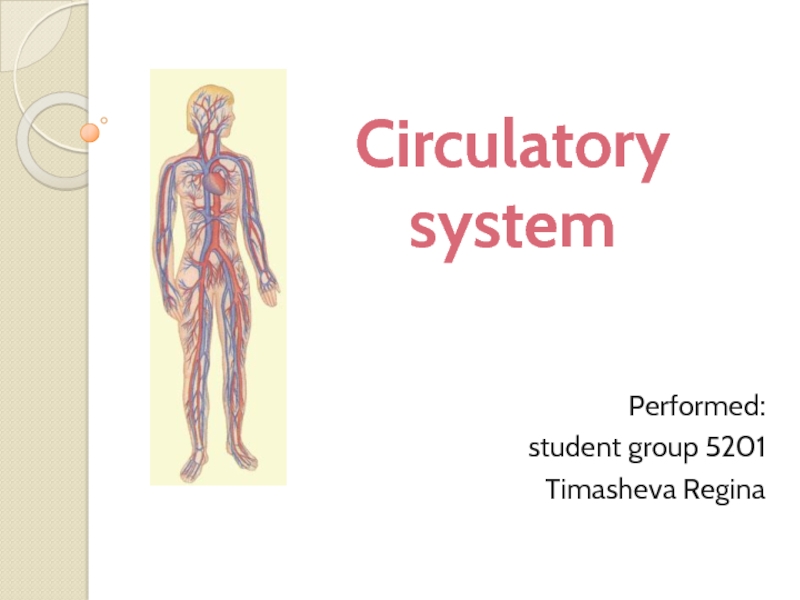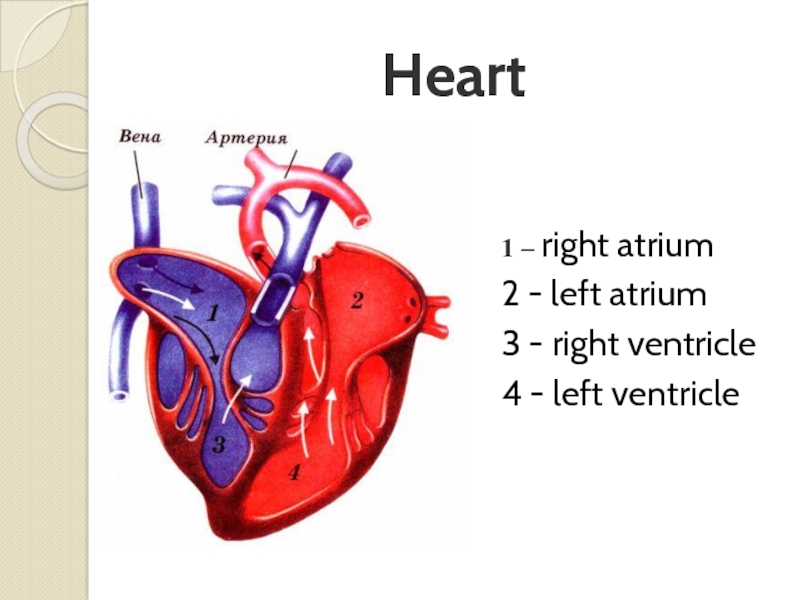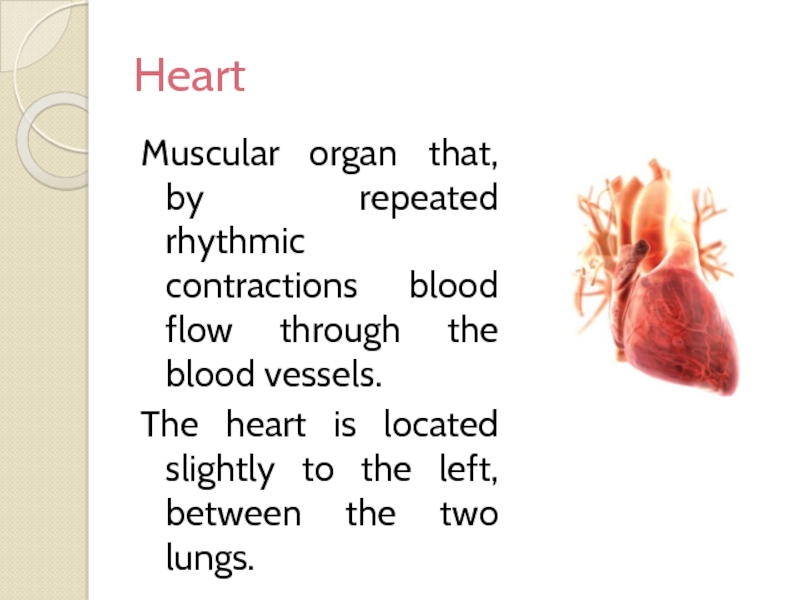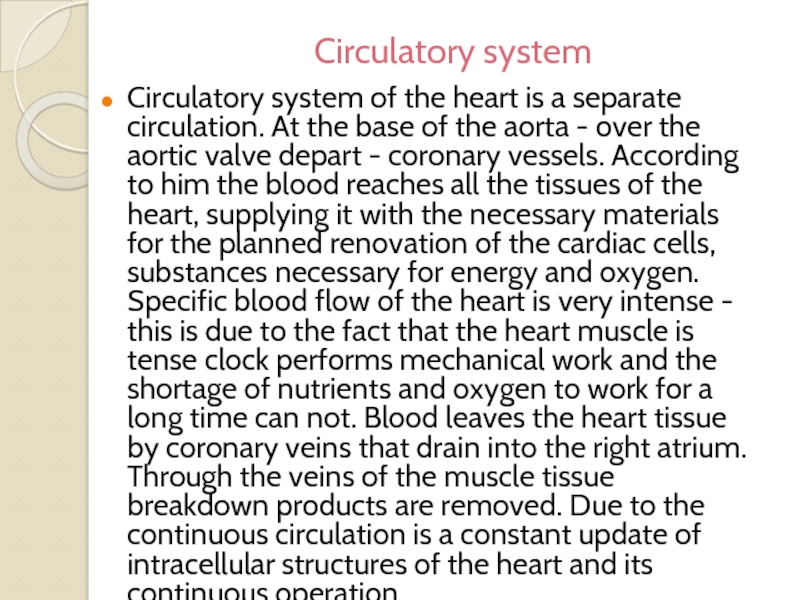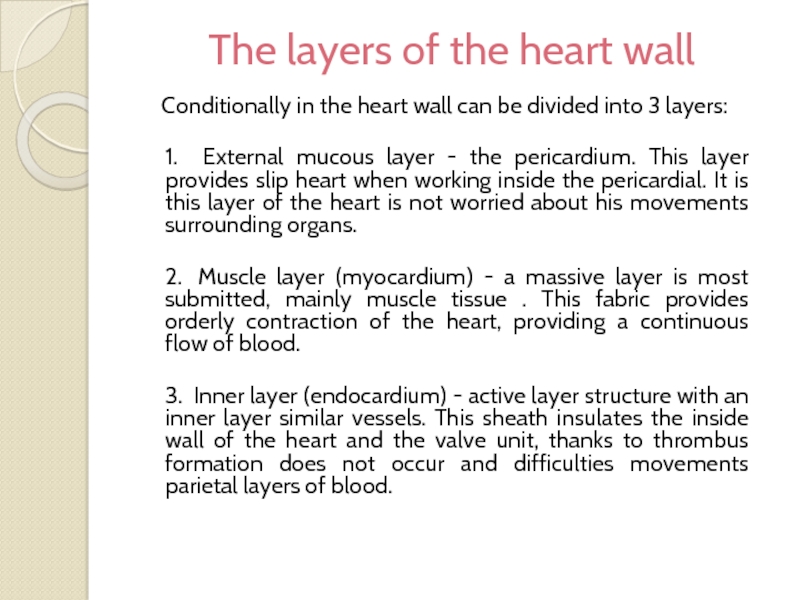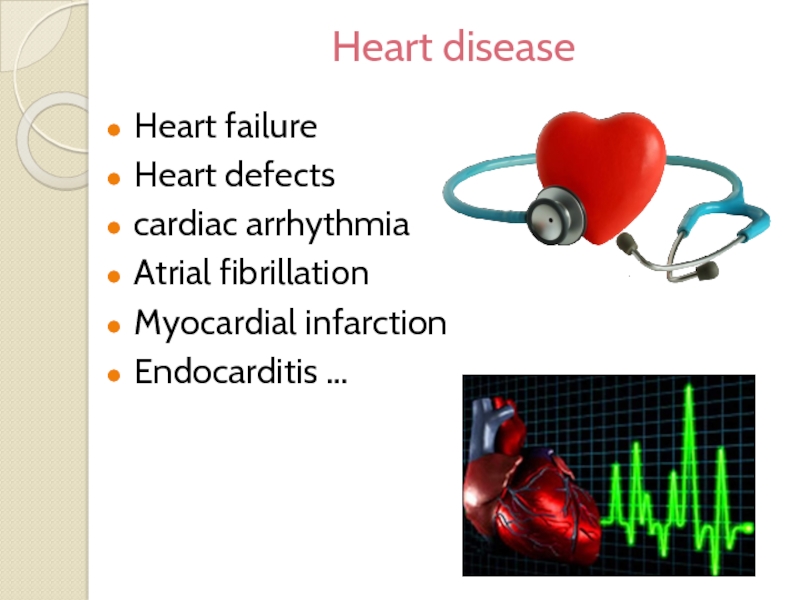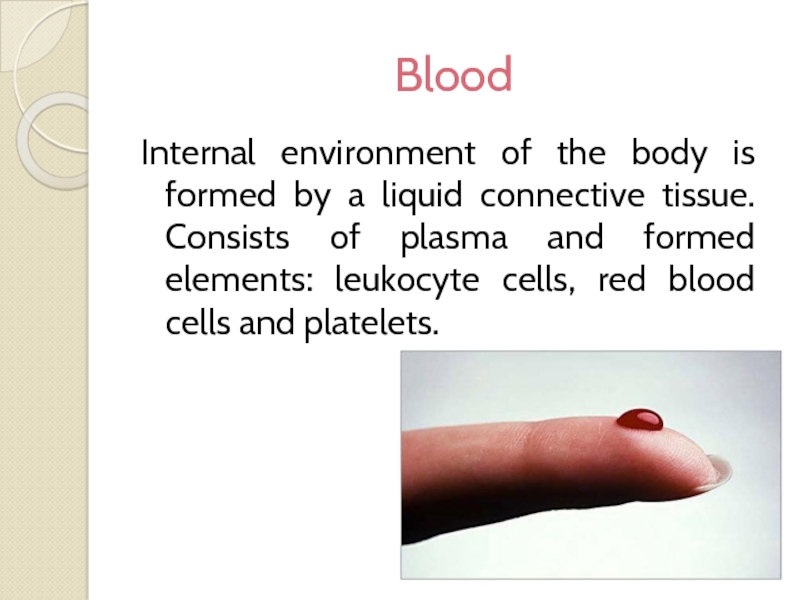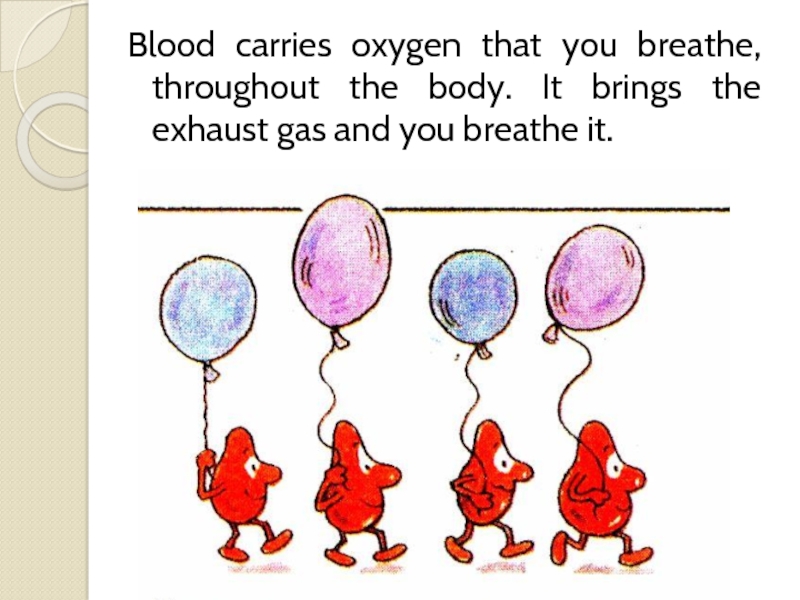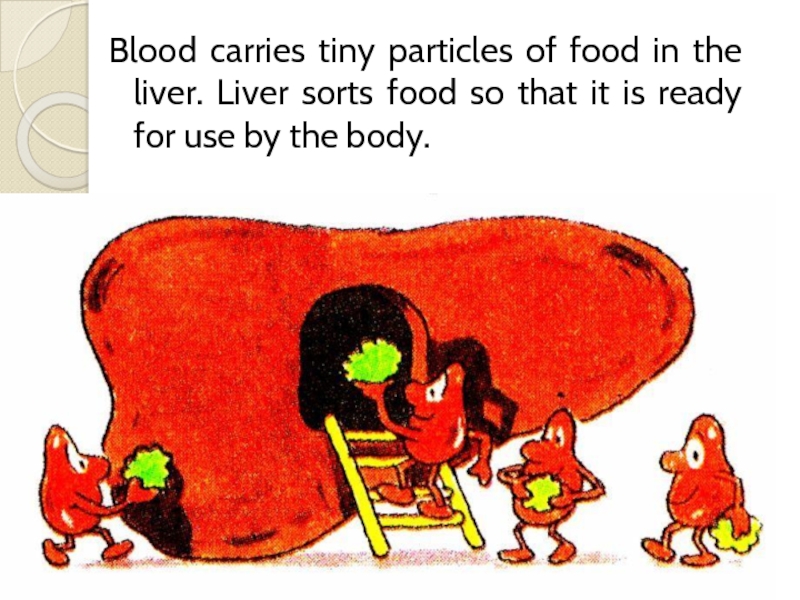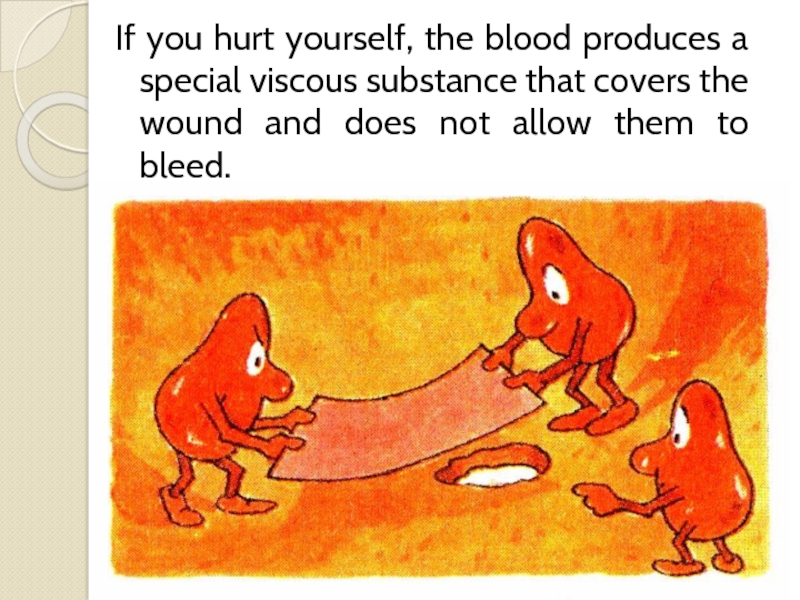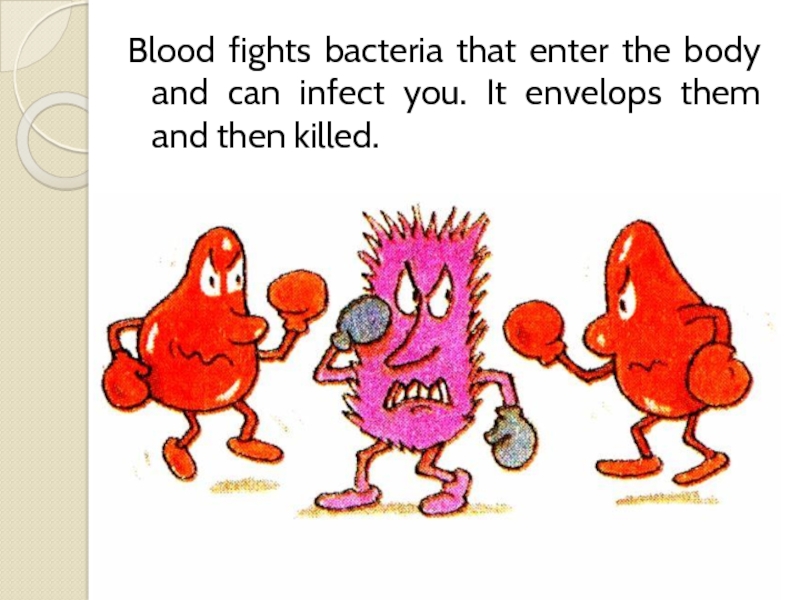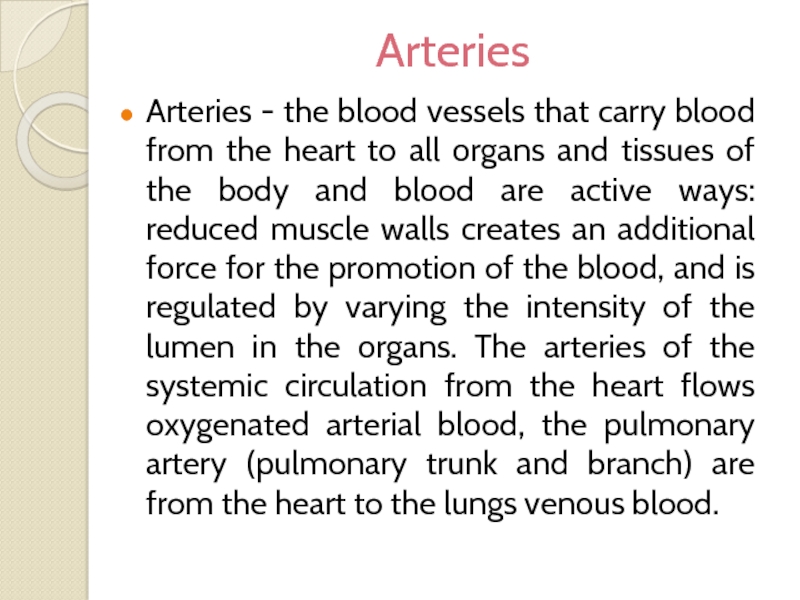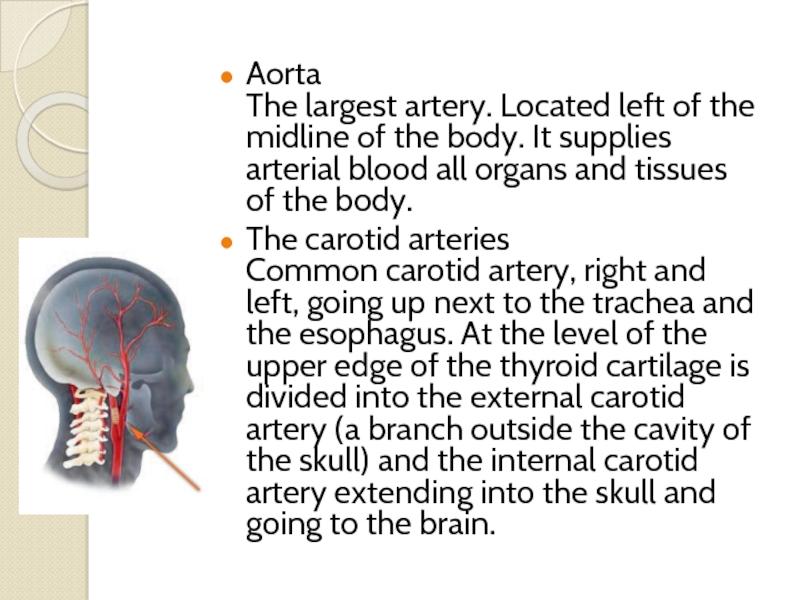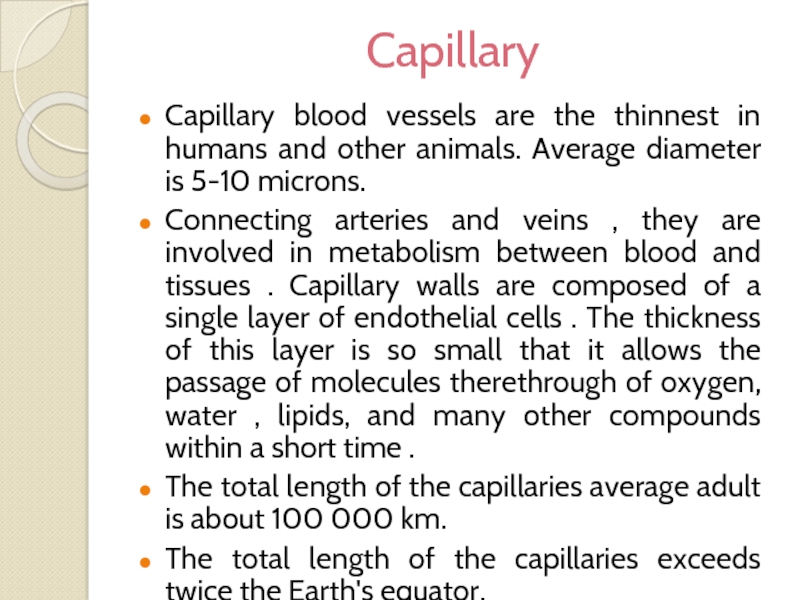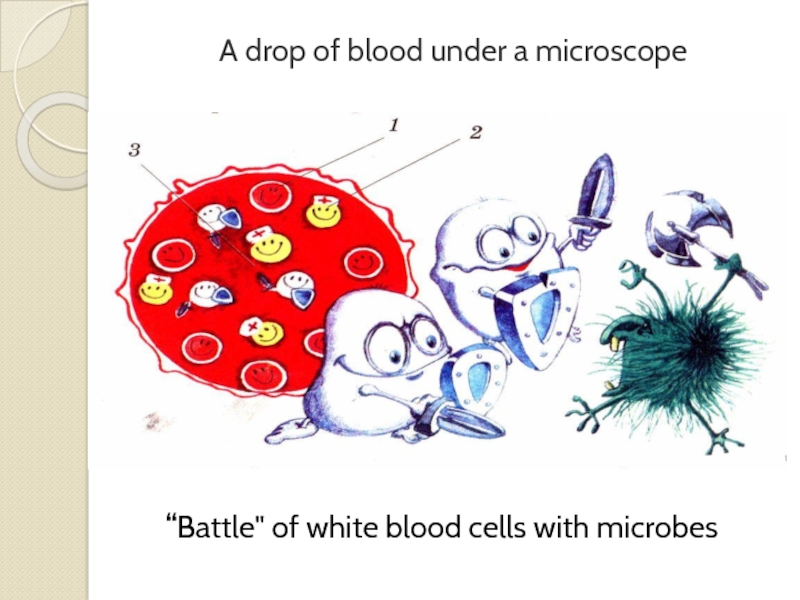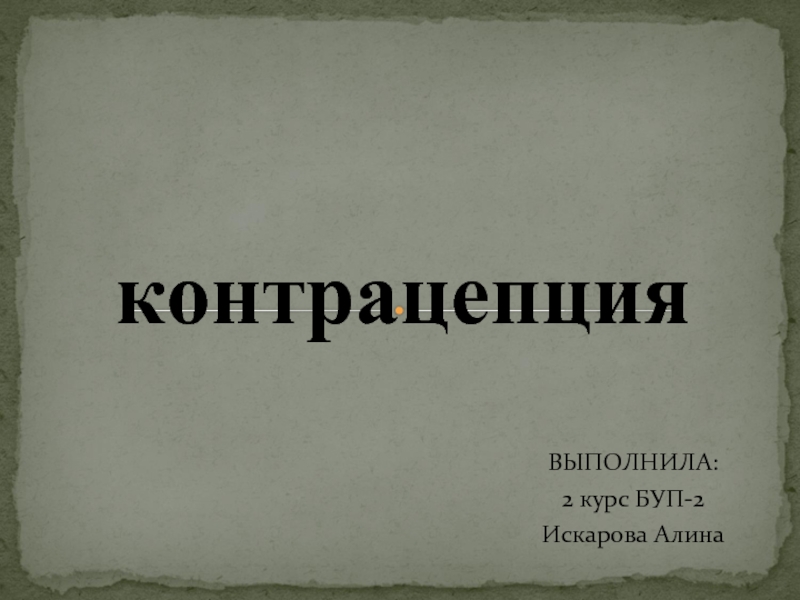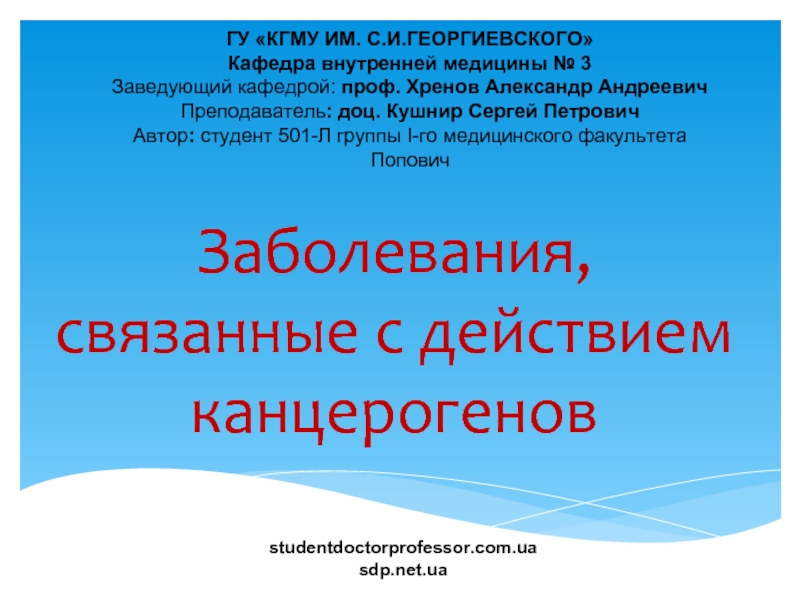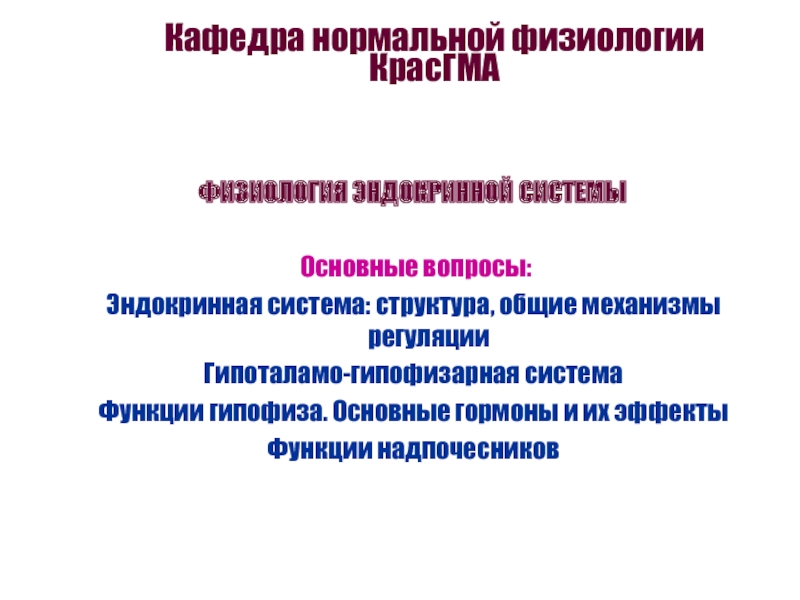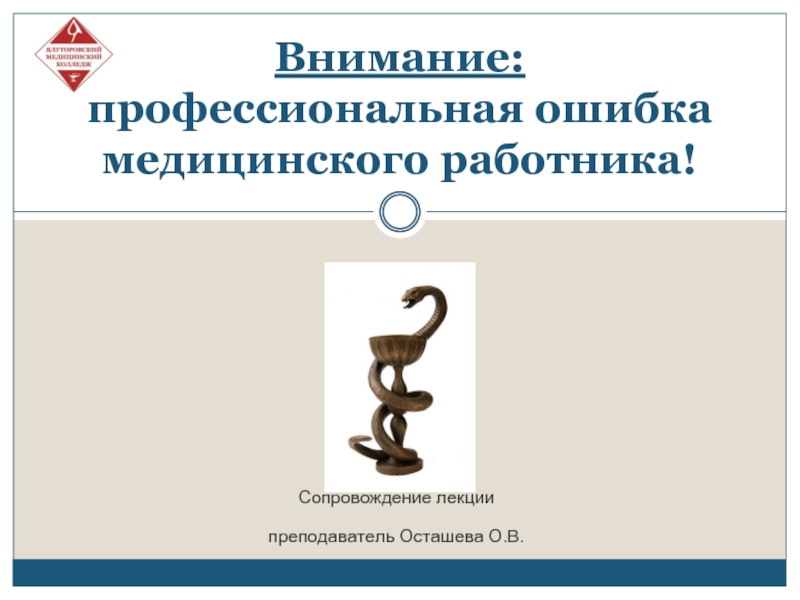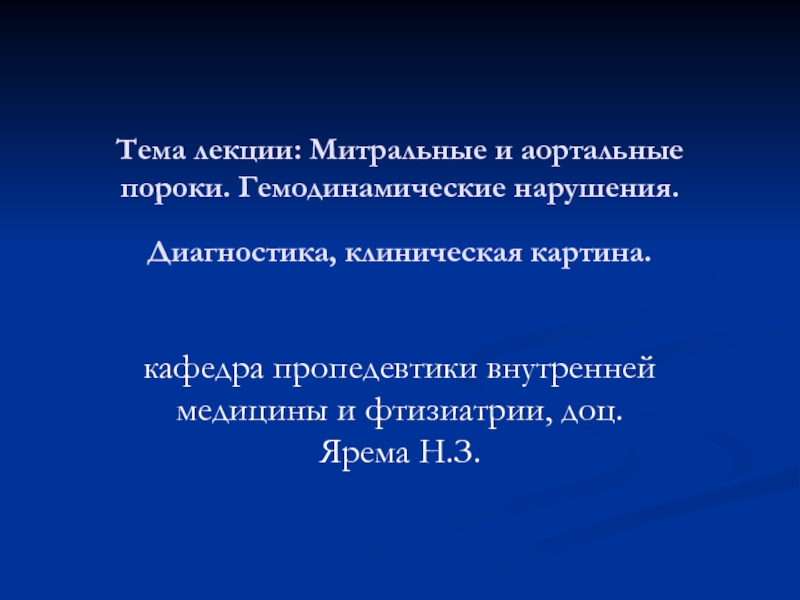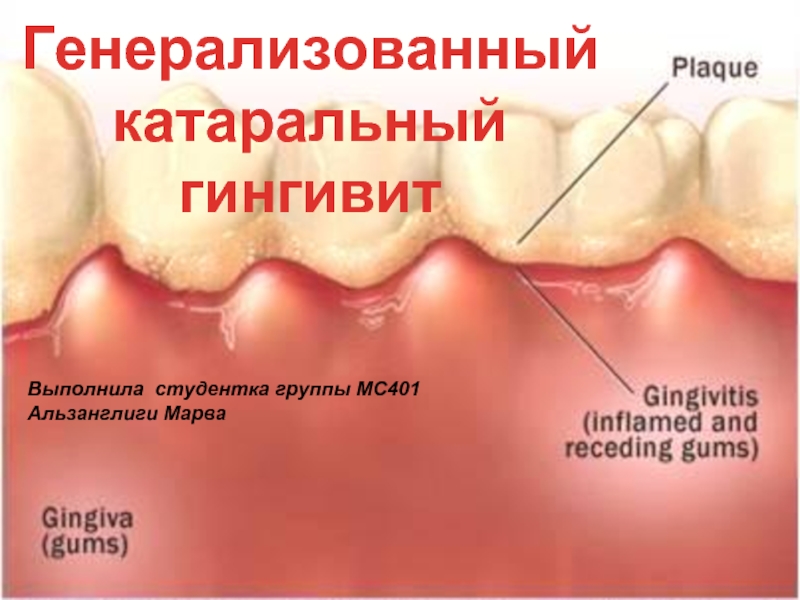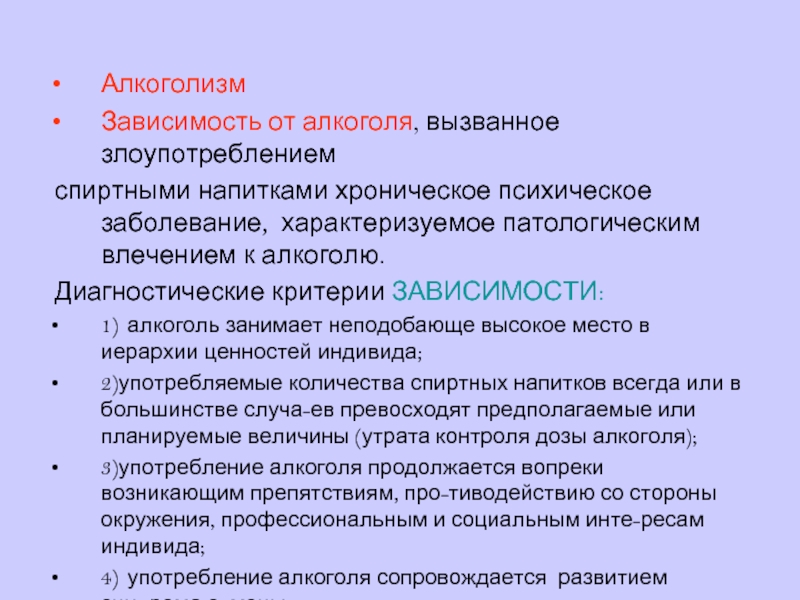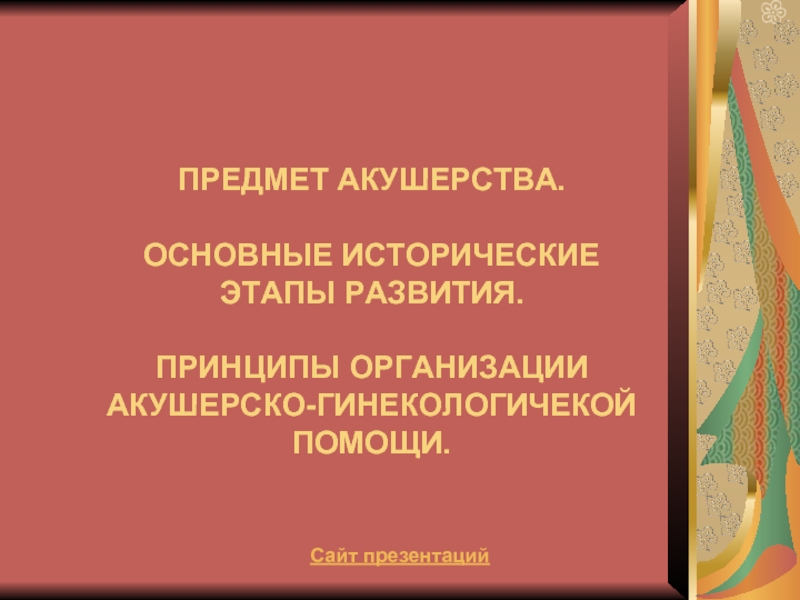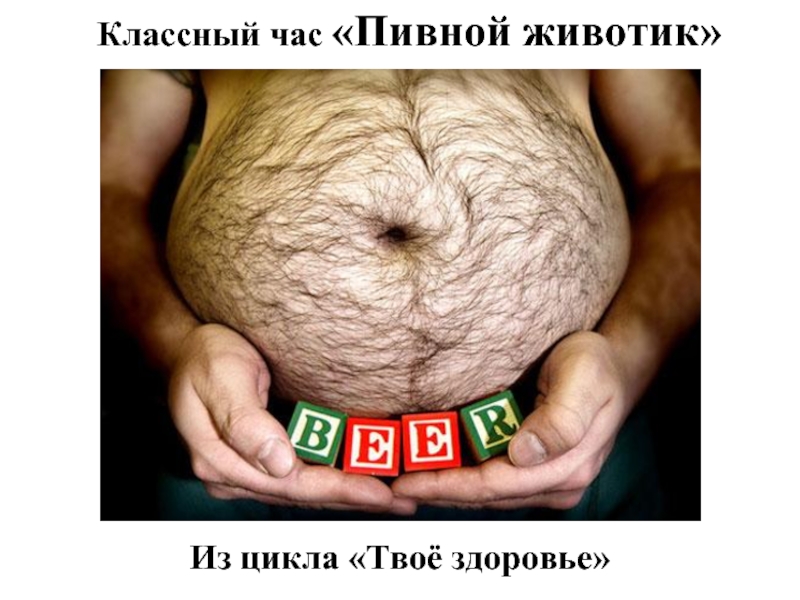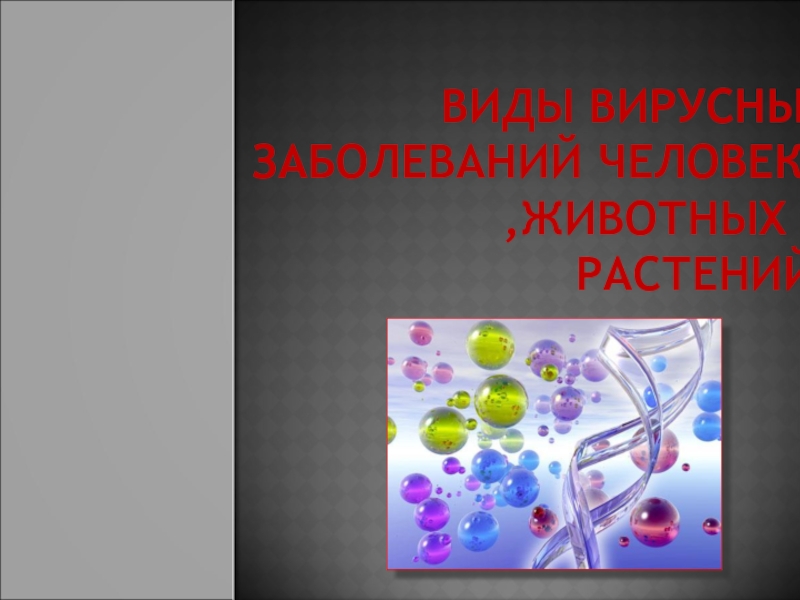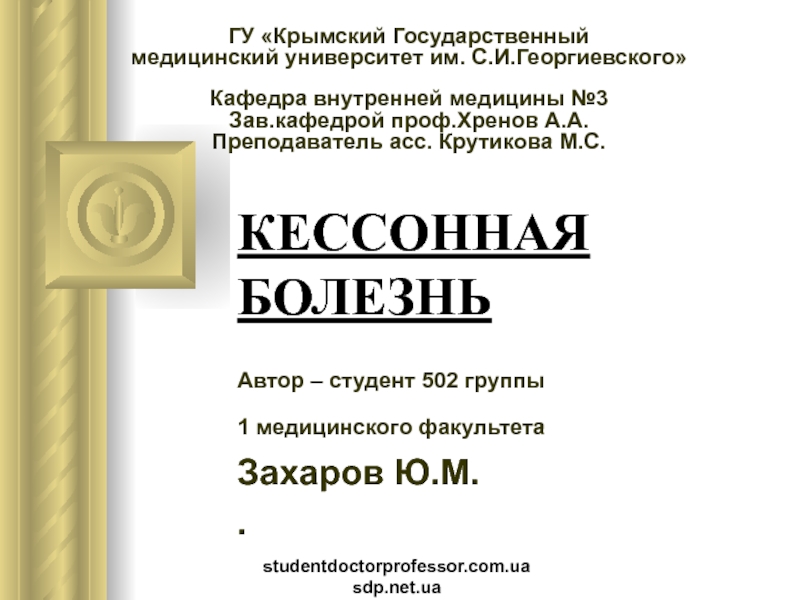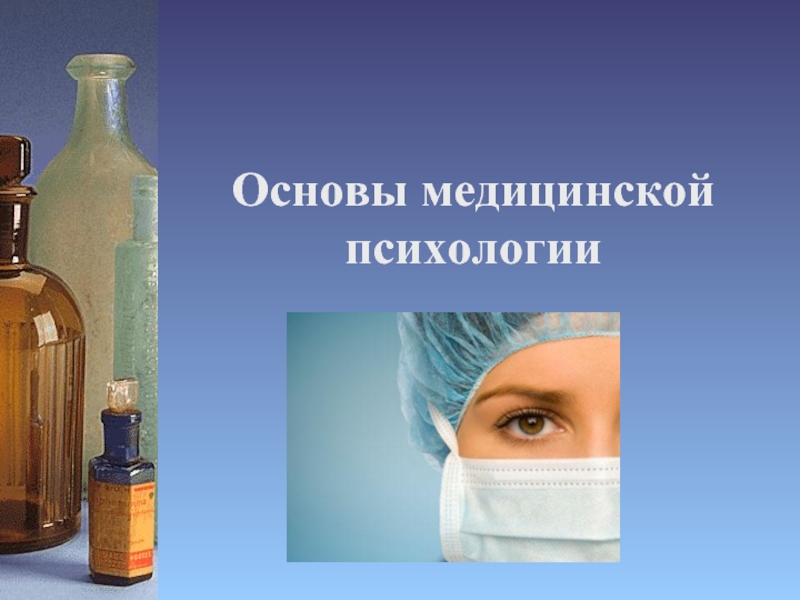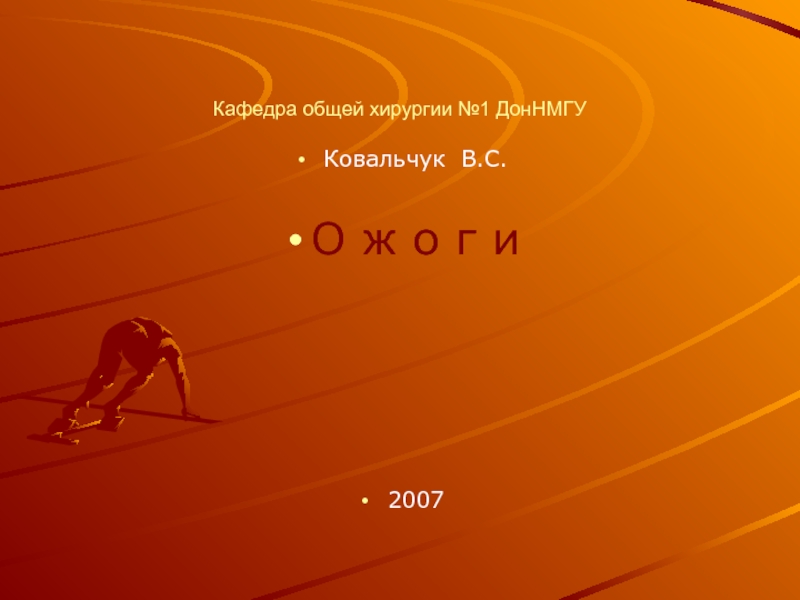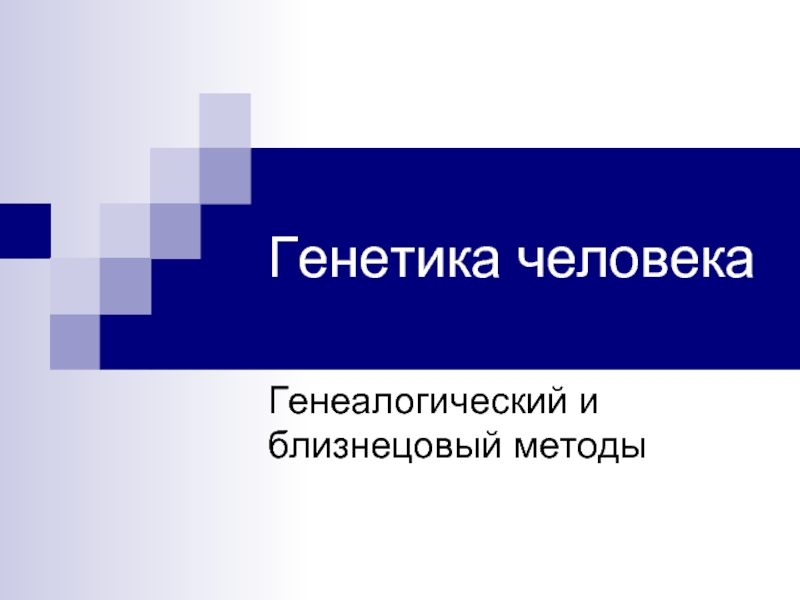Разделы презентаций
- Разное
- Английский язык
- Астрономия
- Алгебра
- Биология
- География
- Геометрия
- Детские презентации
- Информатика
- История
- Литература
- Математика
- Медицина
- Менеджмент
- Музыка
- МХК
- Немецкий язык
- ОБЖ
- Обществознание
- Окружающий мир
- Педагогика
- Русский язык
- Технология
- Физика
- Философия
- Химия
- Шаблоны, картинки для презентаций
- Экология
- Экономика
- Юриспруденция
Кровяносная система
Содержание
- 1. Кровяносная система
- 2. Incoming organs in the circulatory system of the human Heart Blood Arteries Veins Capillaries
- 3. Heart1 – right atrium 2 - left atrium 3 - right ventricle4 - left ventricle
- 4. Heart Muscular organ that, by repeated rhythmic
- 5. Circulatory systemCirculatory system of the heart is
- 6. The layers of the heart
- 7. Heart disease Heart failure Heart defects cardiac arrhythmia Atrial fibrillation Myocardial infarction Endocarditis ...
- 8. BloodInternal environment of the body is formed
- 9. Blood carries oxygen that you breathe, throughout
- 10. Blood carries tiny particles of food in
- 11. If you hurt yourself, the blood produces
- 12. Blood fights bacteria that enter the body
- 13. Blood vessels: A - vienna
- 14. ArteriesArteries - the blood vessels that carry
- 15. Aorta The largest artery. Located left
- 16. Veins VEINS - blood vessels that carry
- 17. CapillaryCapillary blood vessels are the thinnest in
- 18. A drop of blood under a microscope “Battle" of white blood cells with microbes
- 19. Thank you for your attention!Take care of yourself and your health!
- 20. Скачать презентанцию
Incoming organs in the circulatory system of the human Heart Blood Arteries Veins Capillaries
Слайды и текст этой презентации
Слайд 4Heart
Muscular organ that, by repeated rhythmic contractions blood flow
through the blood vessels.
The heart is located slightly to
the left, between the two lungs.Слайд 5Circulatory system
Circulatory system of the heart is a separate circulation.
At the base of the aorta - over the aortic
valve depart - coronary vessels. According to him the blood reaches all the tissues of the heart, supplying it with the necessary materials for the planned renovation of the cardiac cells, substances necessary for energy and oxygen. Specific blood flow of the heart is very intense - this is due to the fact that the heart muscle is tense clock performs mechanical work and the shortage of nutrients and oxygen to work for a long time can not. Blood leaves the heart tissue by coronary veins that drain into the right atrium. Through the veins of the muscle tissue breakdown products are removed. Due to the continuous circulation is a constant update of intracellular structures of the heart and its continuous operation.Слайд 6
The layers of the heart wall
Conditionally in the
heart wall can be divided into 3 layers:
1. External mucous
layer - the pericardium. This layer provides slip heart when working inside the pericardial. It is this layer of the heart is not worried about his movements surrounding organs.2. Muscle layer (myocardium) - a massive layer is most submitted, mainly muscle tissue . This fabric provides orderly contraction of the heart, providing a continuous flow of blood.
3. Inner layer (endocardium) - active layer structure with an inner layer similar vessels. This sheath insulates the inside wall of the heart and the valve unit, thanks to thrombus formation does not occur and difficulties movements parietal layers of blood.
Слайд 7
Heart disease
Heart failure
Heart defects
cardiac arrhythmia
Atrial fibrillation
Myocardial
infarction
Endocarditis ...
Слайд 8Blood
Internal environment of the body is formed by a liquid
connective tissue. Consists of plasma and formed elements: leukocyte cells,
red blood cells and platelets.Слайд 9Blood carries oxygen that you breathe, throughout the body. It
brings the exhaust gas and you breathe it.
Слайд 10Blood carries tiny particles of food in the liver. Liver
sorts food so that it is ready for use by
the body.Слайд 11If you hurt yourself, the blood produces a special viscous
substance that covers the wound and does not allow them
to bleed.Слайд 12Blood fights bacteria that enter the body and can infect
you. It envelops them and then killed.
Слайд 13
Blood vessels:
A - vienna with flaps; 1 and 2 valve
actuation at squeezing veins muscles; Б- artery; В- capillary
Слайд 14Arteries
Arteries - the blood vessels that carry blood from the
heart to all organs and tissues of the body and
blood are active ways: reduced muscle walls creates an additional force for the promotion of the blood, and is regulated by varying the intensity of the lumen in the organs. The arteries of the systemic circulation from the heart flows oxygenated arterial blood, the pulmonary artery (pulmonary trunk and branch) are from the heart to the lungs venous blood.Слайд 15Aorta The largest artery. Located left of the midline of
the body. It supplies arterial blood all organs and tissues
of the body.The carotid arteries Common carotid artery, right and left, going up next to the trachea and the esophagus. At the level of the upper edge of the thyroid cartilage is divided into the external carotid artery (a branch outside the cavity of the skull) and the internal carotid artery extending into the skull and going to the brain.
Слайд 16Veins
VEINS - blood vessels that carry carbonation (venous) blood
from the organs and tissues to the heart, lung and
other than the umbilical vein, which carry the arterial blood .Venous blood enters the right side of the heart in two large venous trunks : the superior vena cava and the inferior vena cava, which fit all the vessels, forming a system of hollow veins.
Venous system also serves as a reservoir of blood: it is constantly contains about 64% of its total volume. Passing through the capillary network , losing oxygen and taking carbon dioxide from the tissues , the blood enters the smallest vessels of the venous system - venules.
Слайд 17Capillary
Capillary blood vessels are the thinnest in humans and other
animals. Average diameter is 5-10 microns.
Connecting arteries and veins ,
they are involved in metabolism between blood and tissues . Capillary walls are composed of a single layer of endothelial cells . The thickness of this layer is so small that it allows the passage of molecules therethrough of oxygen, water , lipids, and many other compounds within a short time .The total length of the capillaries average adult is about 100 000 km.
The total length of the capillaries exceeds twice the Earth's equator.
Теги
